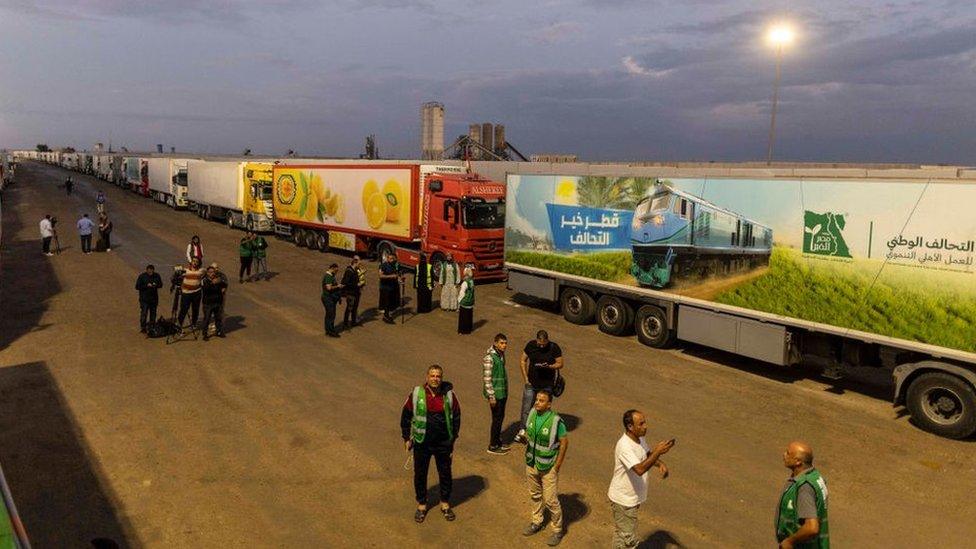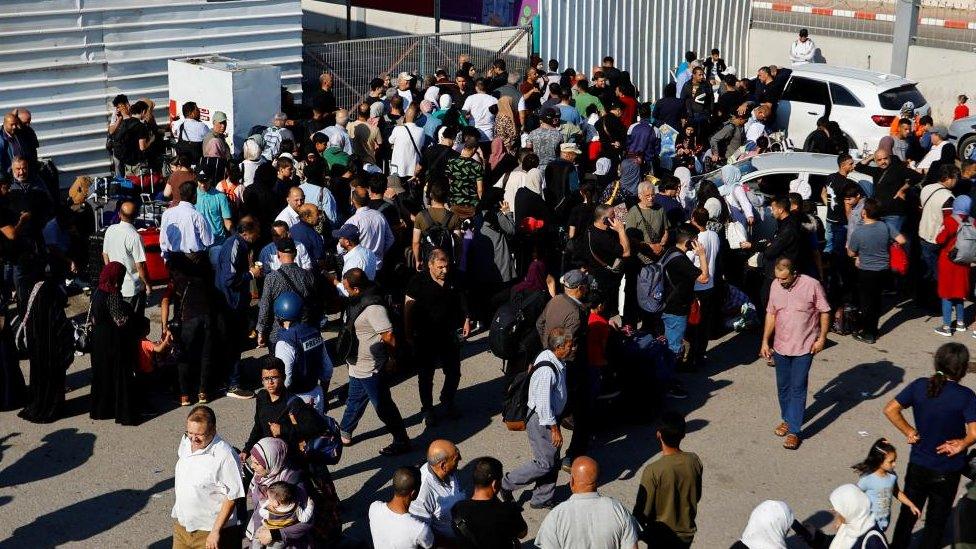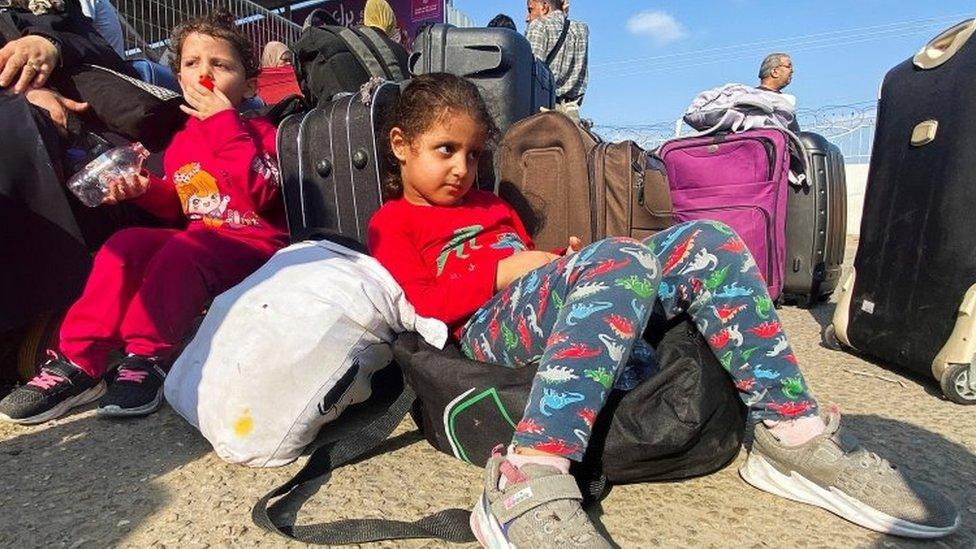Why Egypt remains reluctant to open Rafah crossing to Gaza
- Published

Aid convoys are waiting on the Egyptian side of the Rafah crossing
Egypt has long played a role as a mediator in the conflict not just between Israel and the Palestinians, but also between the main Palestinian factions themselves.
It was the first Arab state to make peace with Israel back in 1978 - after fighting several wars with the Jewish state.
Now, the focus is on Egypt's control of one of the two land routes out of the Gaza Strip - the Rafah crossing.
Thousands of Palestinians are waiting on the Gaza side of the border, while hundreds of lorries carrying desperately needed aid are parked up on the Egyptian side. Many more aid convoys are also heading towards the border.
But there has still been no deal on opening the crossing, which has also reportedly been hit by several Israeli strikes in the past few days.
Egypt's Foreign Minister Sameh Shoukry told the BBC's Newshour programme that from Egypt's perspective, "the Rafah crossing on our side is officially open", but he blamed "aerial bombardments" for making the crossing "inaccessible" and unsafe for aid lorries to cross into Gaza.
But Cairo has kept tight restrictions on movement through the Rafah crossing for many years - to such an extent that many Palestinians have essentially accused Egypt of bolstering Israel's blockade of Gaza, which has been in place since Hamas took full power there in 2007.
The restrictions have mostly been about security concerns in North Sinai where the Egyptian authorities have long been involved in a deadly conflict with jihadists linked to Al Qaeda.
But Egypt's apparent reluctance to open the crossing without clear conditions and guarantees may be more about trying to avoid a mass exodus of Palestinians from Gaza.
The UN's humanitarian chief, Martin Griffiths, says the Egyptian authorities fear a great influx of Gazans - for whom they would then be responsible, for an indefinite period.
In addition, Egypt does not want to play any role in what could amount to a permanent resettlement of hundreds of thousands of Palestinians from Gaza.
It seems prepared to allow foreigners and Palestinians with dual nationality to leave, but it wants this to be dependent on allowing humanitarian aid into Gaza.
A further stumbling block is that Israel seems to want pretty much the opposite - to allow more Palestinians to leave than Egypt is prepared to accept, while limiting the amount of aid that could go in.
Reflecting Egypt's position, Mr Shoukry told the BBC: "It's not a matter of transferring the responsibility to Egypt - it is a matter of maintaining the safety and well-being of Gazans on their own territory."
He has also said the Israeli government has not yet adopted a position that would allow the crossing to be opened.
Diplomatic efforts are intensifying to try to resolve the impasse, as aid agencies warn that the situation in Gaza is edging closer to a humanitarian catastrophe.
Watch: Explosion at Rafah crossing between Gaza and Egypt

More on Israel-Gaza war
Follow live: Latest updates
History behind the story: The Israel-Palestinian conflict
Hamas attack: Family seeks answers after live-stream horror
From Gaza: BBC reporter flees Israel bomb warning
- Published16 October 2023

- Published17 October 2023

- Published1 November 2023
